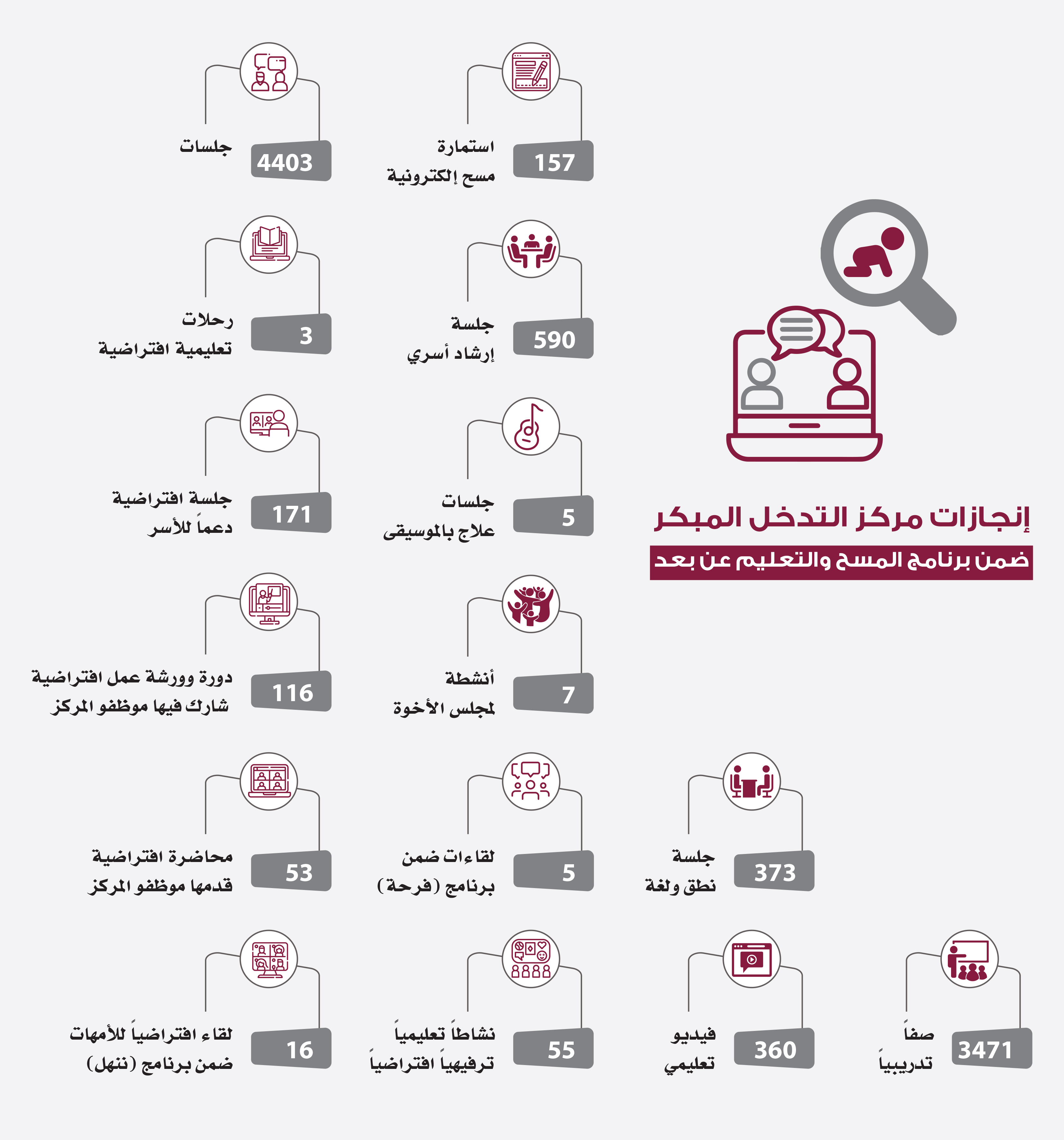
THE EARLY INTERVENTION CENTER PROVIDED 4,403 SESSIONS FOR CHILDREN DURING
The screening program, which Sharjah City for Humanitarian Services Center for Early Intervention has been organizing since 2006 is very important. It plays a great role in the success of early intervention programs and reaching children quickly. As soon as the center discovers the case, It takes the necessary actions.
Due to the circumstances caused by COVID-19, the center has strived to reach families and children wherever they are through the electronic screening program.
After the family fills a special form with the required information, the data reaches the screening team. Then, the team analyzes the data and communicates immediately with the families to complete the information, provide advice, and complete the evaluation procedures based on the nature of the initial results.
During the last period, the center received 157 electronic screening forms. They initially showed the need of 50 boys and girls for the services that the center provides in accordance with international best practices.
Training and Education (Remotely)
Like all departments and branches of Sharjah City for Humanitarian Services, the Early Intervention Center continued to provide its services to beneficiaries according to tight plans, despite the serious challenges imposed by COVID 19. For example, the center presented services remotely through virtual home visits via direct video communication) or through direct attendance while adhering to the precautionary measures and following maximum safety standards.
During that period, the center recorded 590 family counseling sessions, 3,471 training classes, 373 speech and language sessions, 360 educational videos, 55 virtual educational activities, 3 virtual educational trips, 5 music therapy sessions and 7 fraternity council activities. The total number of sessions provided was 4,403 sessions.
Psychological Support
The center also attached great importance to the psychological aspect for families and children, taking into account the circumstances caused by the pandemic. The support provided by the work team in this field continued. The team was keen to provide all forms of psychological support through systematic and organized programs that upgrade the capabilities of families, move them from receiving services to active participation in making them, and take appropriate decisions about them.
The center also supported families through initiatives focusing on psychological aspects. There was sufficient attention to activate family councils for parents and brothers.
Empowering Families
In this regard, the center conducted 16 virtual meetings for mothers within the (Nanhal) we take program and 5 meetings within the (Farha) Joy program. It also organized a virtual dialogue session for parents of early intervention center children, and four virtual raising-awareness lectures for families. The number of virtual family support sessions has reached 171.
Work Team
During this period, the Early Intervention Center was very keen on the psychological comfort of its employees during work (remotely through virtual home visits via direct video call). The center was keen to provide all forms of psychological support to them during this stage in addition to interactive activities and various workshops.
In this regard, the center's employees participated in 116 virtual courses and workshops. The center's employees delivered 53 virtual lectures.
Tip Of The Iceberg
This was a brief overview of some of what the Early Intervention Center has provided for children and their families within the screening and distance education program since the beginning of the pandemic. The rest of what the city’s departments and branches provided in light of the pandemic has become known to all and an example and an honorable model referred to in local, Arab, and global forums


